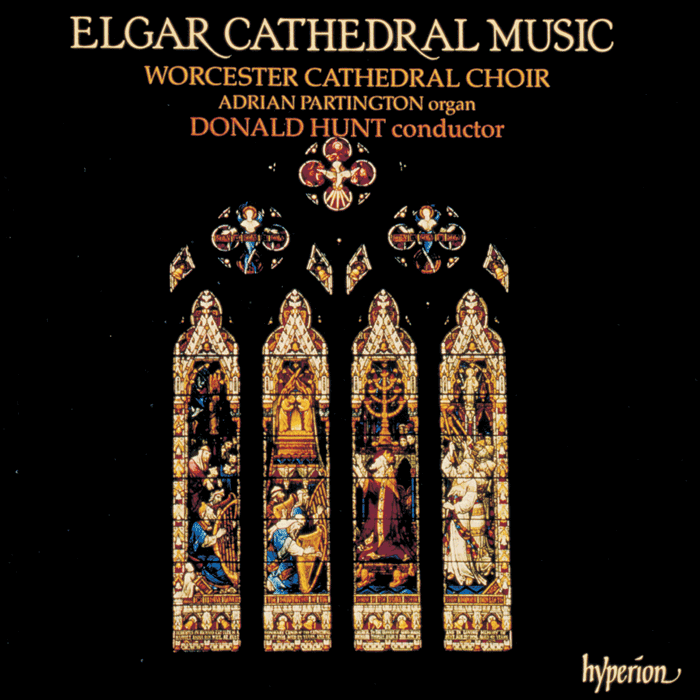Elgar: Cathedral Music
Worcester Cathedral Choir, Donald Hunt (conductor)
CDA66313
Elgar’s church music is firmly rooted in his Roman Catholicism and in his early years as an organist. Yet, paradoxically, it is also inseparably associated with the great Anglican Cathedral of his native city of Worcester. There he played among the tombs as a child, there he listened awestruck to the anthems and motets, there he played the violin in the orchestra at concerts of the Three Choirs Festival and there he conducted his own mighty choral and orchestral works. Today his statue faces the cathedral and the street where his family lived before they moved out to the village of Broadheath and the cottage in which Elgar was born in 1857. Behind him is the High Street, where his father’s music shop once stood and where you would have found Elgar serving behind the counter, perhaps the day after he had conducted one of his own works somewhere in the city. He was ecumenical long before the word was fashionable, at home in the Anglican and Roman Catholic worlds, but not at ease. This recording contains two of the ceremonial settings of psalms he wrote for first performance in two of the nation’s shrines, Westminster Abbey and St Paul’s Cathedral. But before they are mentioned more fully, we should turn to the acorns from which they grew, the smaller, devout works composed for the choir of St George’s Roman Catholic Church, Sansome Place, Worcester, where Elgar’s father William was organist from 1846 to 1884. Elgar himself was assistant organist from the mid-1870s and succeeded his father in 1885. The religious tensions which are a feature of Elgar’s complex personality may have begun with his father, who was not a Roman Catholic and detested any organized religion. Elgar’s mother was converted to the Catholic faith four years after her marriage and William was never fully reconciled to the idea—he threatened (jocularly, one presumes) to shoot his daughters if he caught them going to confession. Ironically, it was because of the Catholic church’s broadmindedness in employing him as organist at St George’s that all this occurred.

